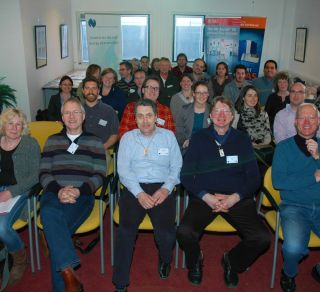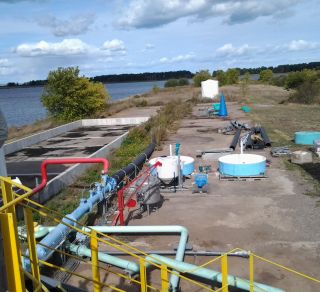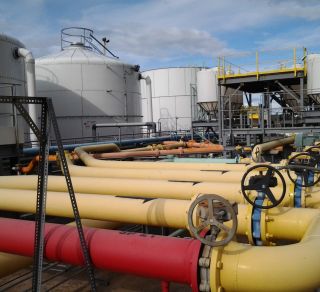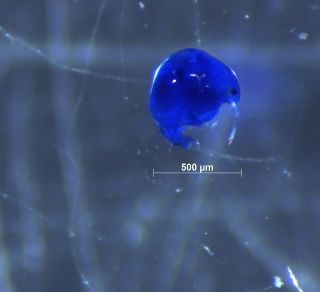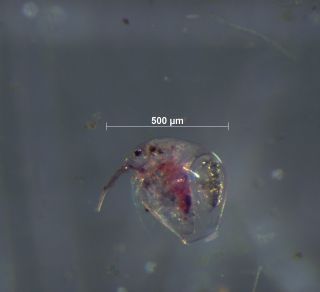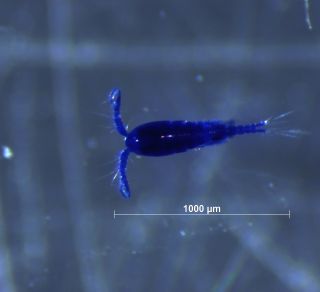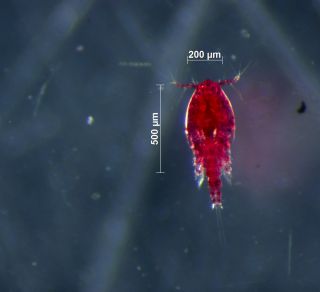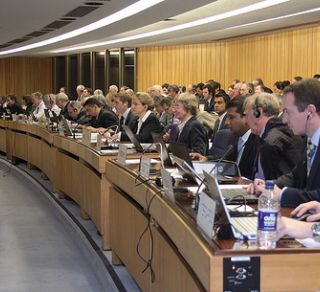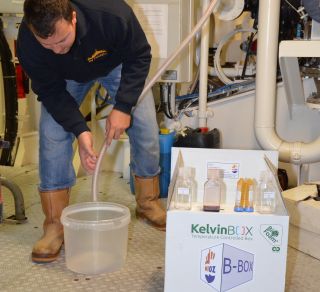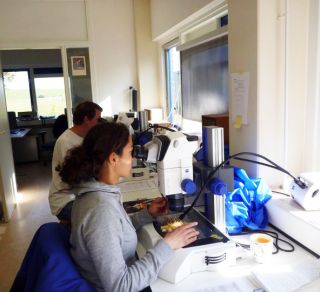 |
|

NSBWO - North Sea Ballast Water Opportunity projectNorth Sea Ballast Water OpportunityBackground and AimAim
Ships' induced bio-invasions in the recent past has lead to the IMO Ballast Water Management Convention (BWMC). Implementation of the BWMC is expected to reduce these invasions, however, the Convention has not entered into force as only 14 states -including Norway-, representing 3.5% of world shipping tonnage have ratified the BWMC while 30 States, representing 35% of this tonnage is required. Implementation of the BWMC creates a new market for innovative products that require research for development. The North Sea Ballast Water Opportunity aims to support the North Sea Region industry to enter this market by capitalizing on the leading reputation of North Sea Region institutes in ecology of invasive marine species and their mitigation. IMO, HELCOM, and OSPAR provide a platform for policies and legal instruments up to a global level. The EU-FP6 provided us with scientific results on aquatic bio-invasion and mitigation. The Ballast Water Opportunity aimed to complement them with practical solutions and technology by supporting collaboration between the stakeholders on implementation, innovation, and providing opportunities to further reduce bio-invasions. The knowledge gained and networks created would provide a lasting solution for the North Sea Region with regard to ballast water. Thus, the North Sea Region ecosystem could enefit while the North Sea Region maritime industry capitalized the opportunities of the BWMC. Information HubProject flyer
Project posters The Ballast Water Times The Ballast Water Times - Ports special The Ballast Water Times - third edition 3rd round Periodic report on activities and finances 5th round Periodic report on activities and finances 4th round Periodic report on activities and finances 6th round Periodic report on activities and finances 7th round Periodic report on activities and finances 8th round Periodic report on activities and finances The Ballast Water Times - last edition NSBWO deliverables poster NSBWO newsletter 2009-00 Newsletter 2009-02 Newsletter 2010-01 Newsletter 2010-02 Newsletter 2010-03 Newsletter 2011-01 Newsletter 2011-01 Newsletter 2011-02 Newsletter 2011-03 Newsletter 2011-04 Newsletter 2012-01 Newsletter 2012-02 Newsletter 2012-03 Newsletter 2012-04 Newsletter 2013-01 Newsletter 2013-02 Newsletter 2013-03 Newsletter Overview project publications - Fact sheets Proceedings Conference Emerging Risk from Ballast Water Management, 2010 Proceedingas conference Emerging Risk from Ballast Water Management, 2010 Emerging Risks from Ballast Water treatment Proceedings NSBWO-Europport 2011 Proceedings NSBWO-Europort 2013 Introducing NSBWO at IMO Marine Environment Protection Committee (MEPC) Presentation Confidence and Trust in BWM at IMO-MEPC Scaling of BWM systems-IMO SubCie BLG 15 Comments on Monitoring and Sampling IMO-BLG 17 Effective technologies for compliance monitoring IMO-BLG 17 INformation on first Type Approval Certifcate of BWM system IMO-MEPC 58 Notification of Type Approval Document UK IMO-MEPC 59 Information Document on NSBWO project IMO-MEPC 59 INformation on Flow Through-IMarEST IMO-MEPC 59 Call for full Transparency IUCN IMO-MEPC 64 Call for ratification of the BWM Convention IUCN e.a. IMO-MEPC 65 Information on testing and implementation NSBWO countries IMO-MEPC 68 Norsas Web site - link to access Identifying barriers to ratification of the BWM COnvention and future perspectives INternational impact of NSBWO-How we achieved it-AC14_Cato ten Hallers International impact of NSBWO-AC12_Cato Transparency in BWM and other issues inspired by NSBWO-Cato_WMTC2015_Providence RI-USA NSBWO revisited_achievements & spin offs-Cato_ICES-WGBOSV 2015 There are no related videos
|
